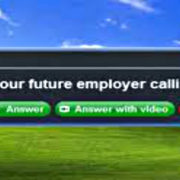Is Your Application a Relic or Still Relevant?
Questions about the cover letter. Books, magazines, products, movies and even people are judged by ‘how they present themselves’ at first sight. The experience of first impressions essentially all boils down to “Do You Matter?” That’s why books and magazines rely on covers, products rely on packaging, movies rely on banners and posters, and people or (job hunters) on cover letters.
Call it old fashioned or not, there are still tonnes of people who still need the cover letter to assess if you matter or whether you are wasting their time or not. I know this is a harsh introduction, but would you have read on if my headline was all nice and easy?
Our team at TJSC have helped over 700 job hunters this year to get job interviews and secure a new job and there was not a single successful submission without a cover letter. Nearly every job ad we see either requests a resume AND cover letter or leaves space in the online submission portion to include one.
We know that you are no more interested in writing the cover letter than employers are about reading it. So why do employers ask for a cover letter if they’re likely not going to look at it?
Here is what tends to happen behind the scenes:
Reason #1 Automated Processes
The request for cover letters in job ads is rarely a specific decision made for each individual job ad. For the most part, Hiring Managers / HR departments and recruiters don’t write the request or requirement for a cover letter manually into ads. Most job sites are designed to make writing job ads as easy and fast as possible. This is simply translated as automation.
Most of the text you see in a job ad is templated, via pre-set text blocks and defaults. The focus in job ads is on key requirements and responsibilities. But, there is also one of these template defaults in the automated process known as the request for cover letters.
Who are these people who determine if these default checkboxes are checked… or not?
I can give you two of the most common causes and they are all made outside of HR departments. It is mainly IT staffers (or consultants) that coordinate the integration of job sites with the company’s HR software. Yes, I’m not kidding. This decision is often made by 3rd parties (recruiters included) who are not even employees of the hiring company because they like to play safe – “just in case HR wants it…” So, as you can see this isn’t some useless conspiracy against you. Whether you like it or not, you don’t have a choice if that box is ticked. Make sure your cover letter matters or you will end up in the trash.
Reason #2 The Need for Differentiators
The other common explanation of why employers ask for cover letters but often don’t even use them is the need for differentiation. Hiring Managers or recruiters want a point of differentiation which highlights ‘why you matter’. They obtain a glimpse into your book via your resume and they wish to verify or judge you by your cover. Get it?
So why do they need a differentiator?
The world of HR and job searching is constantly evolving and changing (e.g. laws, technology, job markets) but there’s one thing which is continually changing faster than anything else: the explosion of applicants. The main reason for that is the copy – paste –shotgun approach to applications. When the numbers of incoming applications explode, things change and it is this change that forces the requirement for a differentiator. The cover letter is your 1st differentiator.
HR professionals have to protect their most valuable asset when searching for a suitable candidate – their time. 10 seconds is all you get. Pass that short window of 10 seconds and they look at your ‘book cover’ to ensure they don’t waste their time further. They also don’t like to get egg on their face when they proceed to call you in for an interview and so they judge you by your cover letter and use the information to check you out further.
Hiring professionals are a bit like shoppers in a book shop as they’ll seek differentiators when viewing book covers and titles. It’s the same with your application. Your cover letter is your book cover. It’s your 1st marketing piece.
You can tell anyone anything, but you have to provide an example to demonstrate why they should believe your claims. So if you write a cover letter…
Demonstrate What Every Employer Wants to Know
Most employers care about the following three things above all else:
- You’re smart.
- You’ll get things done.
- You’ll fit in well with their key requirements and corporate culture.
Before you sign and send your cover letter, do your best to ensure those three things are evident. Again, you don’t ever want to actually say them, but you want your reader to think them when they’ve finished reading your letter.
You can do the usual copy – paste – shotgun approach or you can submit what’s expected of you. You get judged by your cover whether you like it or not, so don’t waste the opportunity and remember to hunt wisely!
Uli

